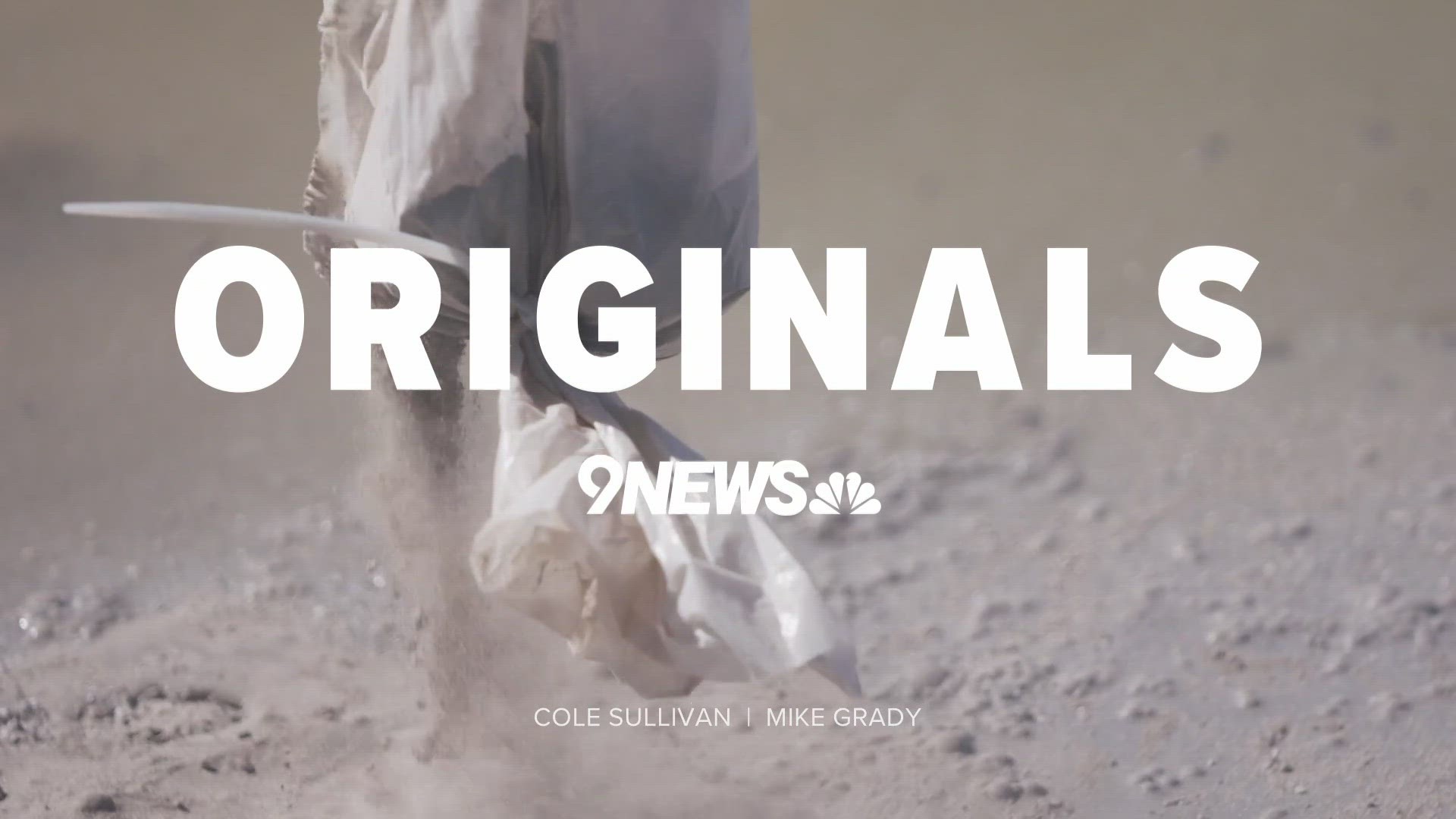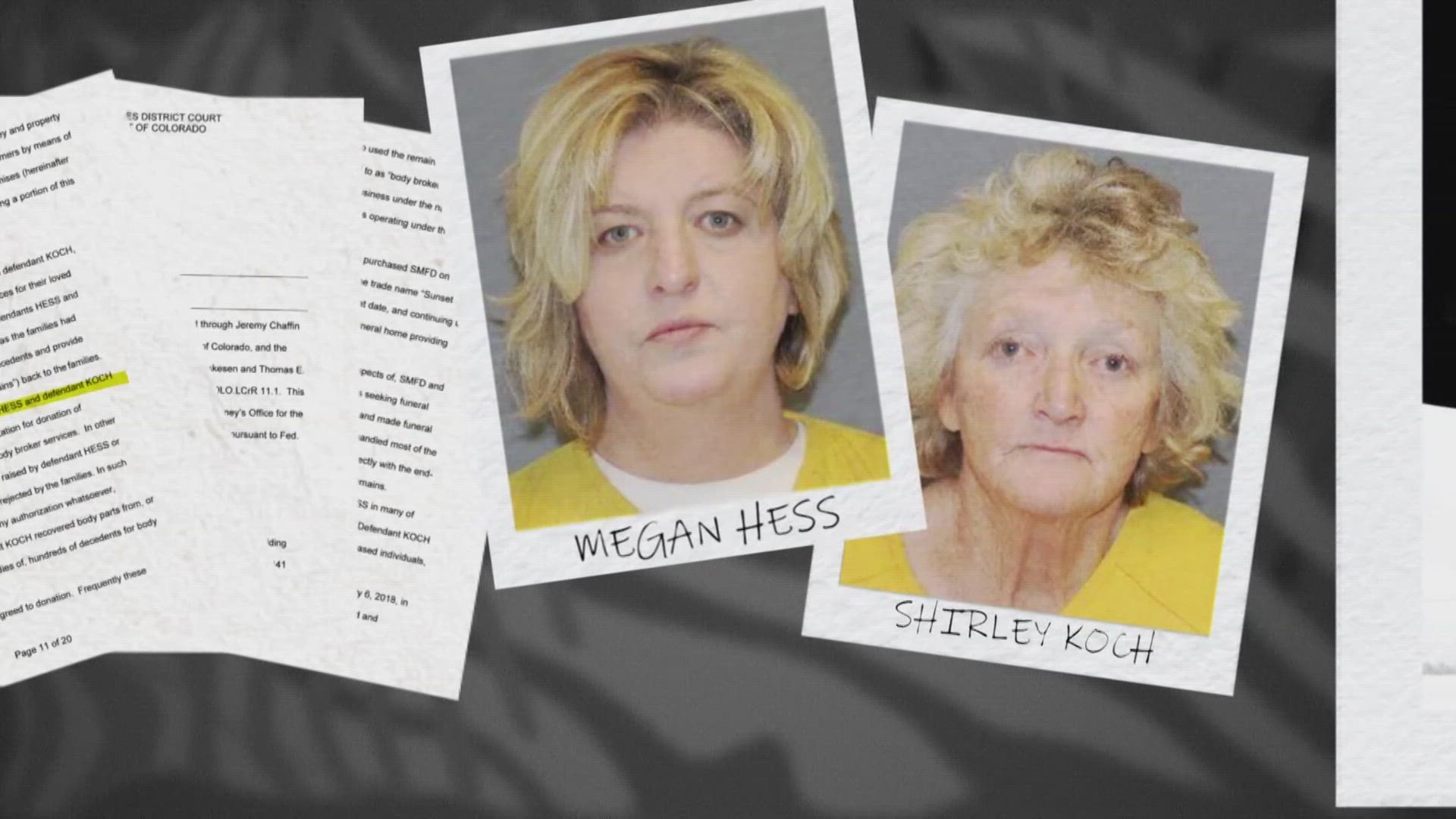DENVER — The lawyer for a former Montrose funeral home owner argued Megan Hess' sentence should be reconsidered during a hearing Thursday morning before the United States Court of Appeals Tenth Circuit in Denver.
Her case reignited the conversation about regulating funeral service professionals in Colorado. Lawmakers are currently considering legislation to require professionals in Colorado to be licensed.
Instead of cremating people's loved ones, Hess and her mother, Shirley Koch, were accused of harvesting body parts, or bodies, and selling them.
Both pleaded guilty to one count of mail fraud and aiding and abetting. Hess was sentenced to 20 years in prison, while Koch received a sentence of 15 years.
> Video below: CO funeral home owner who sold body parts, asks for new sentence
In Court Thursday, Hess' attorney argued she needs to be resentenced because the court did not consider what services, or goods Hess did provide to victims. He pointed to things like headstones and death certificates.
The United States Department of Justice argued those goods and services had no value to the victims, and that the fraud cannot be separated from the goods.
The DOJ argued that Hess' defense had the burden to prove this value at the time of sentencing and never did. Even if those goods and services were considered, they argued her sentence would still be the same and asked that it be upheld.
Koch also appealed her sentence, but her appeal was not argued orally. It was only submitted in writing.
According to Koch's plea agreement, from 2010 through 2018, she was also involved in meeting with families seeking cremation services for their loved ones.
In many instances, prosecutors said, Koch and Hess did not discuss with the families the donation of bodies or body parts for body broker services. In other instances, the two did mention donation, but the families specifically rejected the idea, prosecutors said.
In the few instances where families agreed to donation, Hess and Koch sold the remains beyond what was authorized by the family, which was often limited to small tissue samples, tumors, or portions of skin, prosecutors said.
Prosecutors said Hess and Koch also delivered cremains to families with the representation that the cremains were of the deceased when, frequently, that was not the case.
According to the plea agreements, Hess and Koch would also ship bodies and body parts that tested positive for, or belonged to people who had died from, infectious diseases, after certifying to buyers that the remains were disease free.
These shipments through the mail or on commercial air flights violated Department of Transportation regulations regarding the transportation of hazardous materials, according to prosecutors.


